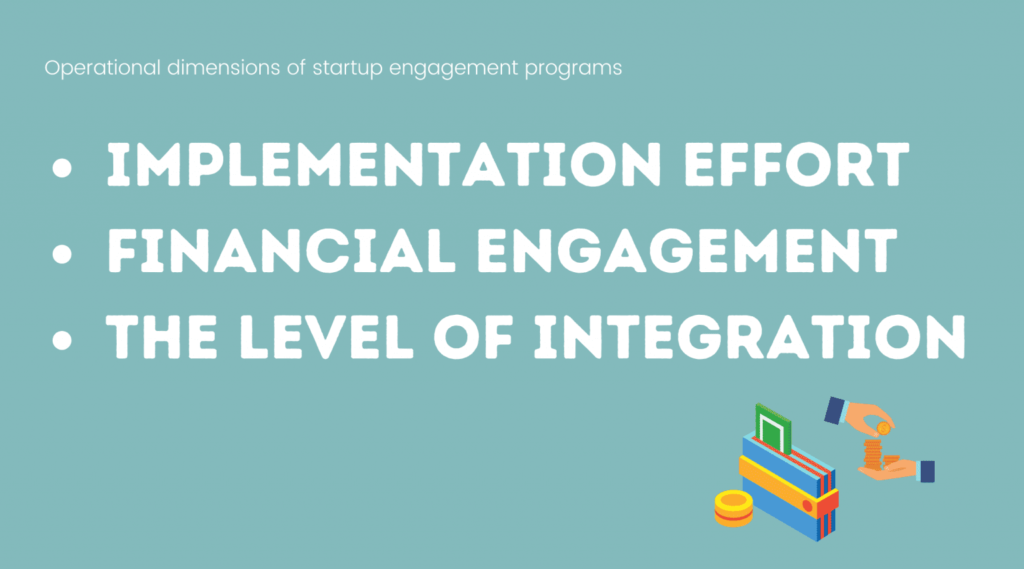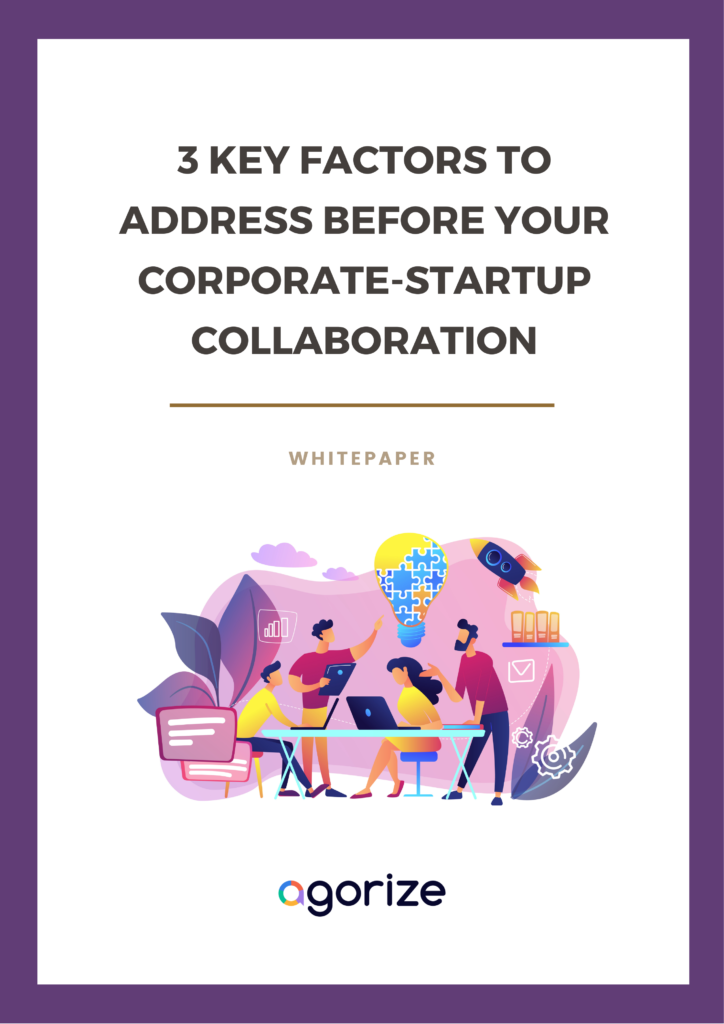Since the introduction of open innovation developed by Chestbrough, many corporations have adopted open innovation strategies to improve their innovation process efficiency by leveraging external talent. Startups and corporates bring each other immense opportunities through collaborations that, if harnessed correctly, create win–win situations for both parties.
However, successfully implementing open innovation is not easy. There are certain conditions to ensure a smooth start to a corporate-startup collaboration journey. Companies may face multiple hurdles prior to engaging with startups which would set you back from an innovation project. In this article, we’ll share the 3 critical dimensions of a successful startup-corporate engagement program. Can you check all the boxes? Take a read and you’ll find out.
Read more:
5 steps to successful corporate-startup engagement
1. Agile company culture
Do you have a culture that fosters agility, openness, and collaboration to work in the ecosystem?
Compared to corporations, startups act much faster, are digital, and are ready to adapt to the adversities that may arise. The ability to cultivate an agile culture within your corporation plays an important role in its readiness level to work with startups. For corporations, organizational culture is shaped mostly by how management acts, so make sure the top leadership embodies an agile mindset that acknowledges the importance of co-creation with all of the stakeholders in the startup ecosystem.

2. Budget and Resources
“Do you have enough support from the C-level and sufficient budget and resources to launch startup engagement programs?”
Innovation is not a one-time effort. To make an entrepreneurial mindset an integral part of the organization, leaders from the C-suite down must actively reinforce innovation as a key corporate strategy. This can be achieved through planning on a long-term roadmap and consistently supporting innovation efforts and ideas.
An obvious but recurring standard problem could be, that a corporation is not willing to invest enough in the following human and financial resources in a certain startup program. Naturally, this will not enable this program to deliver the strategic goals set by management. To avoid this recurring problem, it is important that the management acknowledges the importance of the following operational dimensions:
- Implementation Effort
- Financial Engagement
- The level of integration

3. Dynamic People that ignite passion
“Do you have the right people? People who are passionate about innovation development or have experience working in the startup ecosystem before?”
To achieve value-add engagement and meaningful relationships with startups, it is important that your organization’s innovation department comprises experienced talent in generating insights and co-developing new products and solutions in the startup ecosystem. They are people who acknowledge the importance of corporate-startup engagement and strongly believe in the mission and vision behind the innovation initiatives of the organization or the industry.
It is essential for organizations to meet evolving market and business demands to stay competitive. Often organizations will collaborate with startups, students, and external talents to source new ideas and groundbreaking opportunities.
Before you collaborate with a startup, there are some key elements that you need to consider before starting. These elements may make or break your potential innovation collaboration with external stakeholders. If you’ve checked all the boxes, you are ready to go!
What is Agorize?
Agorize is the most comprehensive innovation management platform, supported by a team of experts and community of innovators. For over a decade, we’ve been providing technology powered by a community of 5 million innovators to foster change and accelerate innovation. Our clients and partners worldwide crowdsource, evaluate and develop solutions from startups, employees, developers and students using Agorize.
We’ve helped over 300 global enterprise companies in Europe, North America, and Asia Pacific, including Enterprise Singapore, Huawei, Microsoft, LVMH, PepsiCo, Bayer, Schneider Electric, Hitachi, L’Oréal and many more by running their innovation programs.
What is an innovation challenge?
An innovation challenge, or innovation competition, is a competition organized by a company to bring forward innovative solutions. The organizer defines clear objectives and problem statements, after which innovators are invited to submit their ideas and solutions. Proposals can come from startups, employees, students or other talent that is relevant to the topic at hand. Through a process of crowdsourcing and assessing ideas, mentoring participants and developing solutions, the organization will identify the winning proposals that will be implemented. More than 300 enterprise companies have organized innovation challenges with Agorize.
Their results speak for themselves. They’ve reduced go-to-market time with internal teams, fast-tracked the development of niche solutions with the products and services of startups, created long-term strategic partnerships and brainstormed future-proof ideas with students from top universities. Overall, it accelerated their own transformation and made themselves more future-proof.
What is a startup challenge?
A startup challenge, or startup competition, is a competition organized by a company to identify innovative solutions from startups they otherwise wouldn’t be able to reach. The organizer defines clear objectives and problem statements, after which startups are invited to submit their ideas and solutions. Proposals can come from startups operating in niche industries and with international backgrounds. Through a process of crowdsourcing and assessing ideas, mentoring startups and developing solutions, the organization will identify the winning proposals that will be implemented.
More than 300 enterprise companies have organized challenges with Agorize. Their results speak for themselves. They’ve reduced go-to-market time, fast-tracked the development of niche solutions, created long-term strategic partnerships and brainstormed future-proof ideas. Overall, it accelerated their own transformation and made themselves more future-proof.











